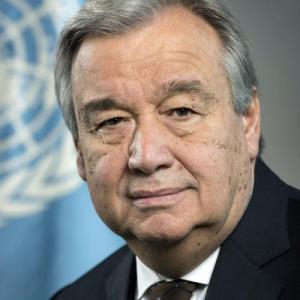My thanks to the United Nations Department of Global Communications for organizing this gathering in cooperation with the philanthropic organization Luminate.
The events of the past year have reminded us that access to reliable information is more than just a basic human right – it can also be a matter of life and death.
The COVID-19 pandemic has been accompanied by an enormous concurrent “infodemic”.
Misinformation and hate speech have proliferated, jeopardizing the health of millions of people worldwide, undermining confidence in vaccines and science, and dividing communities and countries.
The pandemic has had another very dangerous side-effect: it has accelerated the financial decline of many public interest media organizations.
With estimated losses of $30 billion over the last year for newspapers alone, some fear that the pandemic could become a “media extinction event”.
We cannot afford to let this happen. Maintaining independent, fact-based reporting is an essential global public good, critical to building a safer, healthier and greener future.
Without urgent action by the international community, we could be left with irrevocable damage to our societies and irreparable threats to the Sustainable Development Goals.
Today’s discussion is particularly timely in the lead-up to World Press Freedom Day. It offers an opportunity to advance initiatives to ensure that trusted, impartial information is available to all.
In that regard, I welcome efforts by donors, the private sector and civil society to create the International Fund for Public Interest Media. Ensuring sufficient funding and support is crucial to securing the long-term future of independent media organizations, especially in low- and middle-income countries.
Through these efforts the international community can chart a path towards a new era of sustainable, public interest journalism, while helping to restore trust across societies.
I urge Member States, donors and other stakeholders to support this vital new endeavor.


















